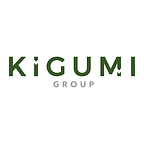A High-Level Guide to Ethical Fitness (Part 3 of 5)
Today I cover one everyday technique (building emotional vocab) you can use with your children to improve their ethical reasoning.
Remember that the goal of ethical fitness isn’t to find quick answers or get things 100% right in every situation — it’s to increase our skill in navigating the ethical conundrums that surround us.
Keeping that in mind, our first tip: give your children the right linguistic tools to identify and articulate the emotional experiences that shape their realities.
Or in other words: make it so they can talk about what they feel.
Language frames our reality
Some of the greatest frustrations we can have are directly linked to our inability to read or understand our own emotions — both in personal and professional life, ignorance of what is happening in our own minds can lead to severe disillusionment, avoidance of problems, irrational decisions, and unethical behavior.
Avoid this by starting early with your children and helping them build a broad, diverse and nuanced vocabulary about the range of emotions they have. “Happy,” “sad” and “angry” are the basic emotional words we all start with — but as we grow, we soon encounter situations that evoke more complex and nuanced emotions: like when happy and sad combine (melancholy), or when empathy and fear merge (concern), or when regret and honesty intertwine (guilt).
Diversify the tools in your toolkit
An acquaintance recently shared a story about her two-year-old son. Although he hasn’t yet learned the word “why,” he has found a work-around to getting his point across: instead, he says “because what?” This level of industriousness demonstrates the forceful need that we all (children in particular) have to understand and articulate their experiences. Even without knowing the right word (“why”) yet, this young child adapted the tools at his disposal (“because” and “what”) to express something that was important to him and his understanding of the world at this stage.
We can all take a page out of his book. Each of us are born with emotional toolkits — what varies is the quality and range of tools inside them.
As we grow and the complexity of the situations we find ourselves increases, our tools (our linguistic and expressive preparation) comes into play in a big way to help us understand and react to new emotional experiences. Think about your child’s first day of kindergarten, or when she first dealt with a bully, or saw hypocrisy in an adult — all were firsts, but how well she reflected on, reacted to, and constructively learnt from them was largely dependent on how well she was able to talk to herself about these new emotional experiences using her foundational vocabulary.
The same emotional mechanism will carry her through her adult experiences, too: perhaps when she navigates her first job out of college; or when she first feels the conflict between what is rational versus what is right; or the multitude of other ways she’ll be faced with emotional and ethical decisions she has little to no precedent for.
The jungle will get denser, but if she has learnt the basics of how to navigate well she will be able to clear a path forward.
How to do this on a day-to-day level
- Ask your school counselor about the SEL (social and emotional learning) techniques and vocab they use and model it at home.
- Build emotional vocabulary by using emotion-oriented games and books (like our own Kigumi Character Building Games, Dr. Seuss’s “My Many Colored Days,” Eva Muggenthaler’s “Fish on a Walk,” or Richard Wicke’s “Mirror Me Cards”).
- Choose media and books that put characters in a range of nuanced situations (avoid overly simplistic narratives of “good” vs “evil” or “good guys” vs. “bad guys”) and discuss with your children what they think the characters could be feeling and how the characters are reacting to their circumstances.
- Complement linguistic tools with non-verbal ones by giving them outlets to make art, act, dance, play music, or express themselves in other artistic ways.
